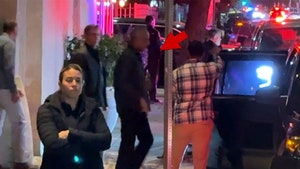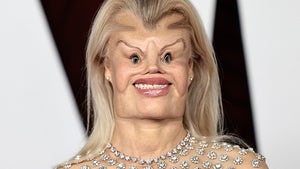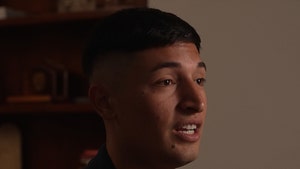Justices Weighing Speech, Vulgarity in 'Friends' Show Lawsuit
California's justices are set to argue a case Tuesday in which a former "Friends" show writer's assistant claims she was subjected to sexual harassment on the job.
The show's producers, Warner Bros. Television Productions, insists that trash talk during writers' meetings was part of the creative process and, therefore, the studio and its writers are immune to the lawsuit.
The case concerns Amaani Lyle, 32, whose sexual harassment lawsuit has landed before the California Supreme Court. Lyle alleges the raw sexual remarks that peppered work sessions and conversations added up to harassment against women.
She was fired almost six years ago, after four months on the job because she could not transcribe meetings fast enough.
"Our argument goes from the idea that in this workplace, women were fundamentally demeaned by these people, 24-7," said Lyle's attorney, Scott Ohara Cummings.
Warner Bros. admits that some, but not all, of the sexually explicit talk Lyle alleges did take place, according to attorney Adam Levin, who represents the defendants.
But Levin said the banter was a vital part of the creative process, and Lyle had been warned that explicit discussions were part of developing the sexually charged NBC comedy about six pals in New York.
Levin is asking the justices to reverse an appeals court that said jurors should hear Lyle's case.
"The opinion hangs like Damocles' sword over the heads of employees in any workplace in which speech, particularly that which might offend others, is an integral part of the business and an indispensable part of the job," Levin said.
He argued in court briefs that, if the appellate court's opinion stands, employers could be expected "to direct writers, professors, artists and other employees in communicative workplaces to check their First Amendment rights at the workplace door."
The appeals court, in allowing the case to go to a jury, said the creative process was protected speech, but added that Lyle has a right to try to prove that the vulgarities strayed beyond that creative process.
"To the extent defendants can establish the recounting of sexual exploits, real and imagined, the making of lewd gestures and the displaying of crude pictures denigrating women was within the scope of necessary job performance and not engaged in for purely personal gratification or out of meanness or bigotry or other personal motives," the appeals court wrote in 2004, "defendants may be able to show their conduct should not be viewed as harassment."
The Legal Aid Society's Employment Law Center in San Francisco told the court in briefs it sides with Lyle, saying harassment laws are not automatically voided in a television studio.
The Los Angeles Times and the American Society of Newspaper Editors warned of a chilling effect on the exchange of ideas and information if Lyle wins.
The case is Lyle v. Warner Bros. Television Productions, S125171.




